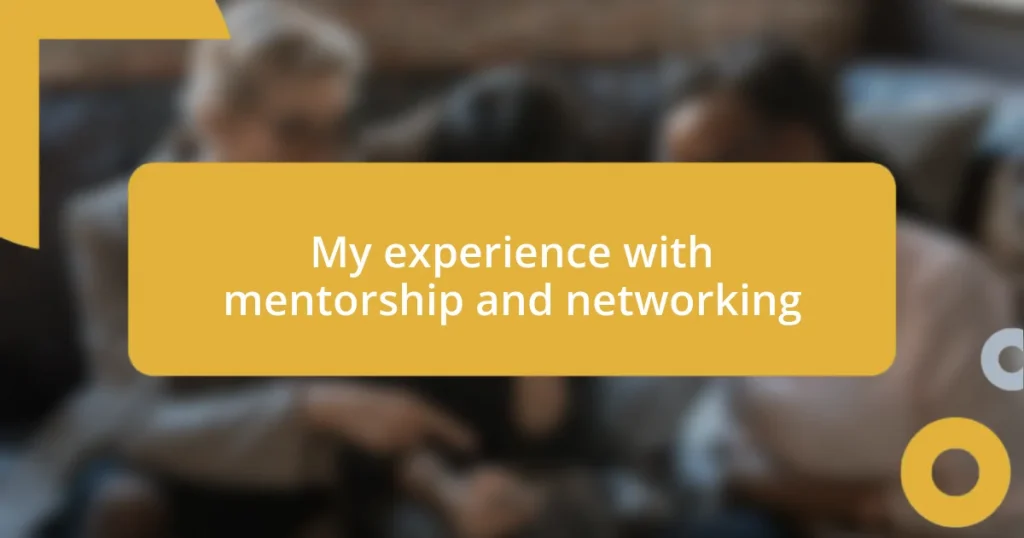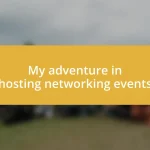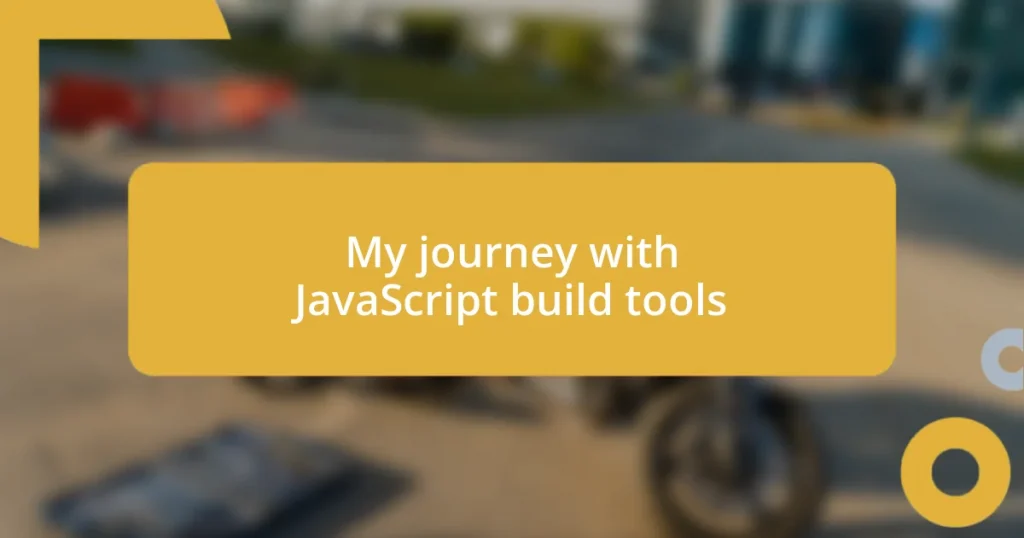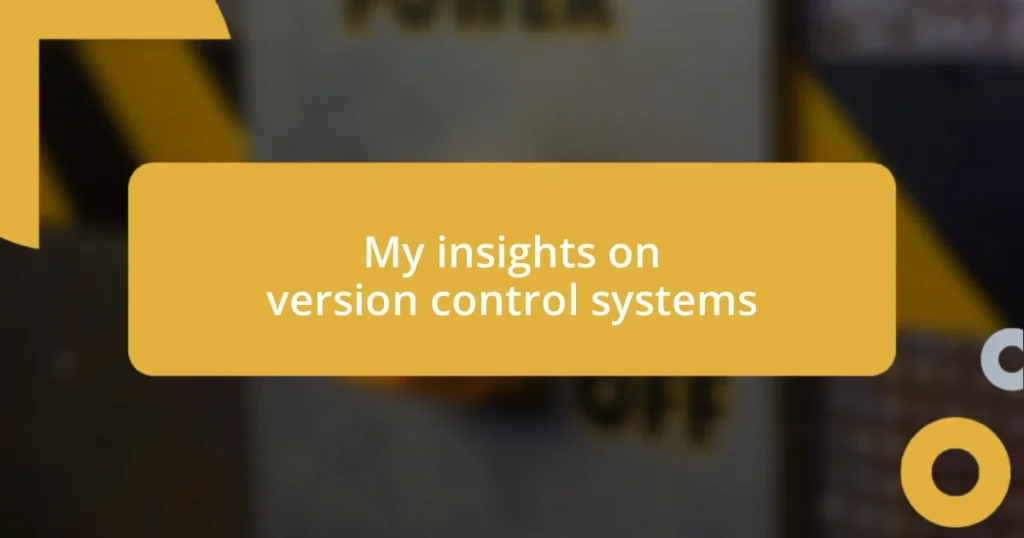Key takeaways:
- Mentorship provides guidance, boosts self-confidence, and expands professional networks through key introductions.
- Finding the right mentor involves shared values, emotional intelligence, and a commitment to invest time in the mentee’s growth.
- Maintaining connections through thoughtful gestures and celebrating others’ achievements fosters long-lasting professional relationships.
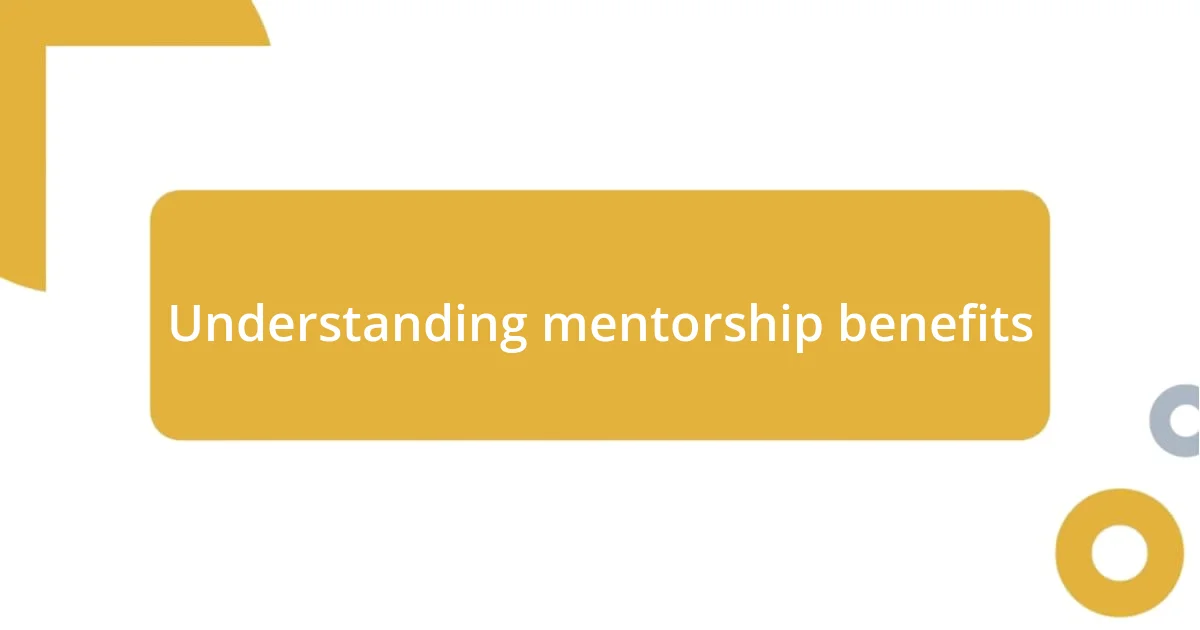
Understanding mentorship benefits
Mentorship offers invaluable guidance that can shape both personal and professional pathways. I remember my first mentor, who not only provided insights into navigating workplace dynamics but also became a sounding board for my ideas. Have you ever found someone who truly believed in you? That unwavering support can ignite a spark, leading to growth you never thought possible.
Another significant benefit is the access to a broader network. Mentors often introduce their mentees to key industry contacts, which can open doors to opportunities that might otherwise remain closed. I once landed a pivotal job interview thanks to a connection my mentor facilitated, and it changed the trajectory of my career. Isn’t it fascinating how one relationship can lead to a cascade of opportunities?
Furthermore, mentorship can help you develop self-confidence. I recall feeling hesitant about sharing my ideas in meetings until my mentor encouraged me to speak up. Their belief in my potential made me strive harder and embrace new challenges. Have you experienced a moment when someone’s faith in you changed your perspective? That’s the essence of mentorship – fostering the belief that you can achieve your goals.
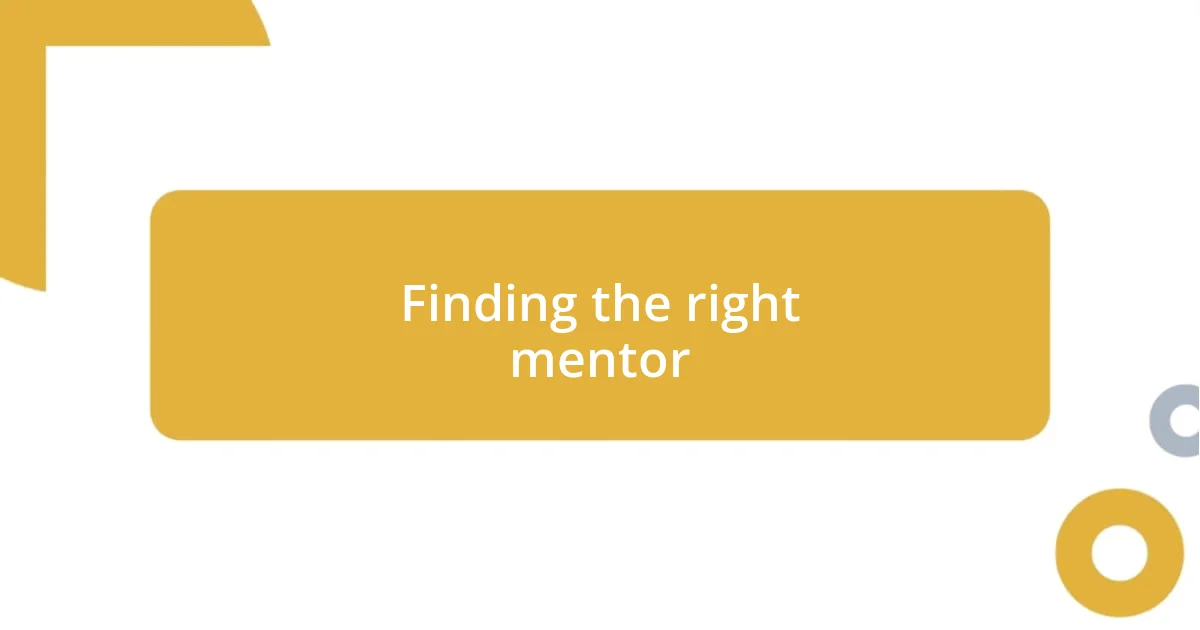
Finding the right mentor
Finding a mentor who resonates with your goals is crucial. In my experience, the right mentor is someone who not only shares your values but also has achieved what you aspire to accomplish. I remember seeking out a mentor in my field, someone who had successfully navigated the challenges I was facing. The connection felt instant; their insights were exactly what I needed to refine my approach and build my confidence.
As I progressed, I learned that compatibility extends beyond professional achievements. Emotional intelligence plays a significant role in mentorship. I found it essential that my mentor could empathize with my struggles. There was one instance when I felt overwhelmed. My mentor not only listened but also shared their own setbacks, which made me feel less isolated in my journey. That kind of understanding is invaluable.
Finally, consider the mentor’s willingness to invest time in your growth. I once worked with a mentor who made it a point to check in regularly. These conversations not only kept me accountable but also deepened our relationship. It’s a two-way street, and finding someone who genuinely cares about your progress can make all the difference.
| Factors to Consider | Importance |
|---|---|
| Professional Alignment | Ensures shared goals |
| Emotional Intelligence | Builds trust and understanding |
| Time Investment | Affects the quality of mentorship |
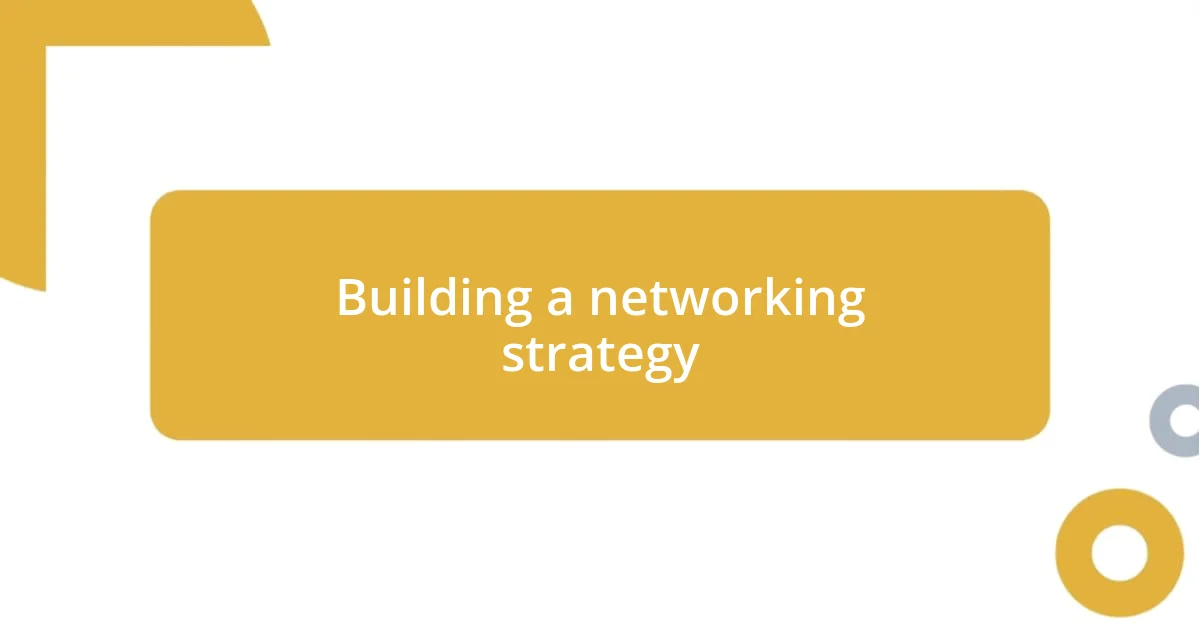
Building a networking strategy
Building a networking strategy requires intentionality and thoughtfulness. I’ve learned that networking isn’t just about collecting contacts; it’s about fostering genuine connections. For me, the key was to approach conversations with curiosity and an open mind. I vividly remember attending an industry event where, instead of just exchanging business cards, I engaged in conversations that revealed shared interests. These deeper interactions led to relationships that have lasted well beyond that day.
To create an effective networking strategy, consider the following steps:
-
Identify your goals: Understand what you want to achieve with your networking efforts, whether it’s job opportunities, mentorship, or collaboration.
-
Research individuals and organizations: Find key players in your field and learn about their work to have meaningful discussions.
-
Utilize social media: Platforms like LinkedIn can be powerful tools for connecting and engaging with industry peers. I often share articles and insights, which invites conversation.
-
Attend industry events: Whether in-person or virtual, these settings provide opportunities to connect with like-minded individuals.
-
Follow up: After meeting someone, send a personalized note or message. It’s a simple gesture that keeps the conversation going and shows your genuine interest.
Over time, I discovered that a well-structured approach fosters connections that can evolve into valuable relationships. When I made a conscious effort to build a diverse network, I found a supportive community that enriched my career and personal growth.
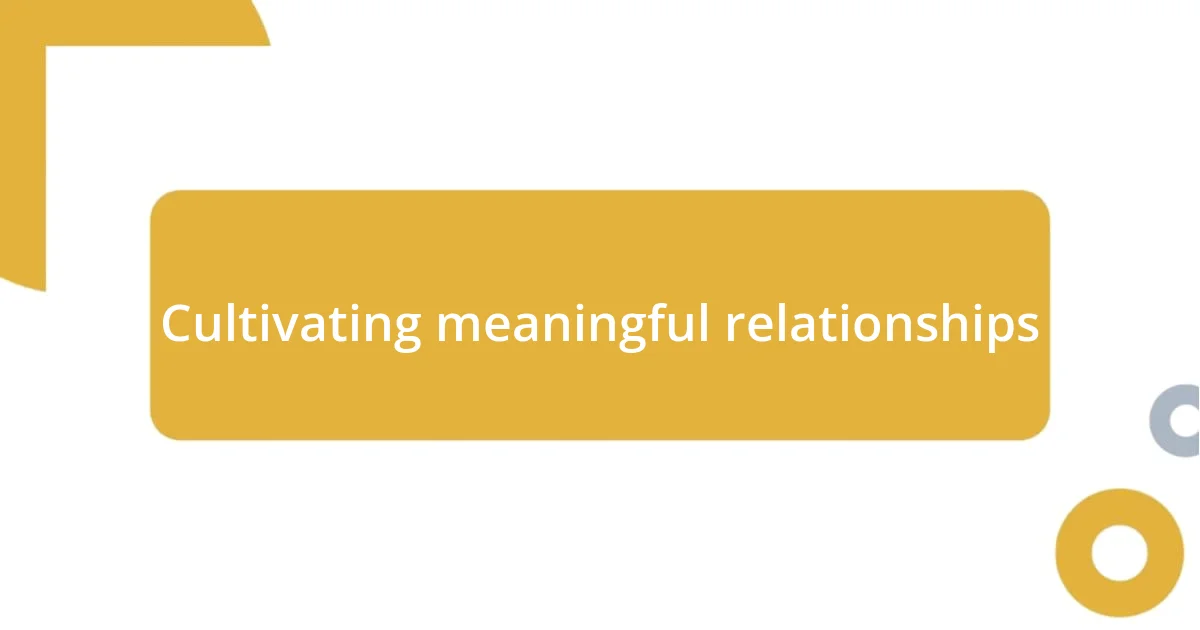
Cultivating meaningful relationships
Cultivating meaningful relationships is a journey that requires genuine effort and authenticity. I often reflect on a particular networking event where I met someone not just looking to exchange pleasantries but seeking a real connection. During our conversation, they shared their passion for the industry, which sparked my interest. Wasn’t it refreshing to talk to someone who radiated enthusiasm? That energy created a bond, transforming a simple interaction into a budding friendship.
As I developed these relationships, I realized the importance of being vulnerable. There was a time I hesitated to share my struggles for fear of being judged. But when I did open up, something magical happened—people began to relate and reciprocate. I recall a colleague sharing an experience that mirrored mine, and in that moment, we became allies. Have you ever experienced that sense of camaraderie? It’s those shared stories that lay the foundation for lasting connections.
I’ve come to understand that investing time in nurturing these relationships is essential. I’ve made it a habit to check in with my contacts regularly, whether through a quick message or a coffee catch-up. I once reached out to a connection after years of silence, and to my surprise, they welcomed the conversation with open arms. This taught me that a simple gesture can reignite relationships, showing that you care about more than just networking; you genuinely value the person behind the contact. How often do we let potential friendships slip through the cracks simply because we forget to reach out? It’s a reminder to be intentional in our connections.
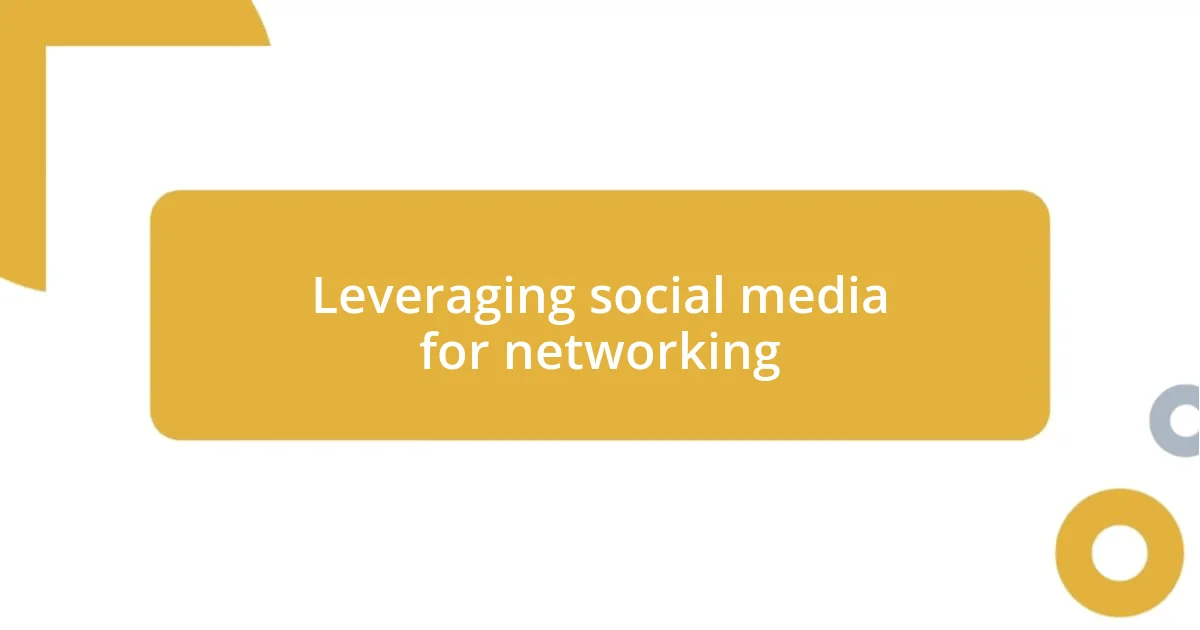
Leveraging social media for networking
Using social media for networking has been a game changer in my journey. I’ve often leveraged platforms like LinkedIn to not only connect with industry professionals but also to share my thoughts and insights. I remember one time, after posting an article about a recent trend in our field, I received an unexpected message from someone intrigued by my perspective. This led to a rich discussion that blossomed into an invaluable mentorship. Isn’t it amazing how a single post can transform your connections?
Engaging authentically online is crucial. I’ve found that simply liking or sharing content isn’t enough; it’s about adding your voice to the conversation. I often comment thoughtfully on posts that resonate with me, which has, surprisingly, opened doors to deeper discussions with professionals I admire. Have you ever thought about how a well-placed comment can catch someone’s attention? As I started doing this more often, I forged bonds that extended well beyond the digital sphere.
Don’t underestimate the power of joining online groups and forums related to your interests. I recall joining a niche community on Facebook, where I actively participated in discussions and shared my experiences. One evening, a fellow member reached out, and we ended up having a virtual coffee chat. That connection not only enriched my understanding of the industry but also led to collaborative projects that I hadn’t anticipated. How often do we miss out on opportunities simply because we don’t engage with our digital environments proactively?
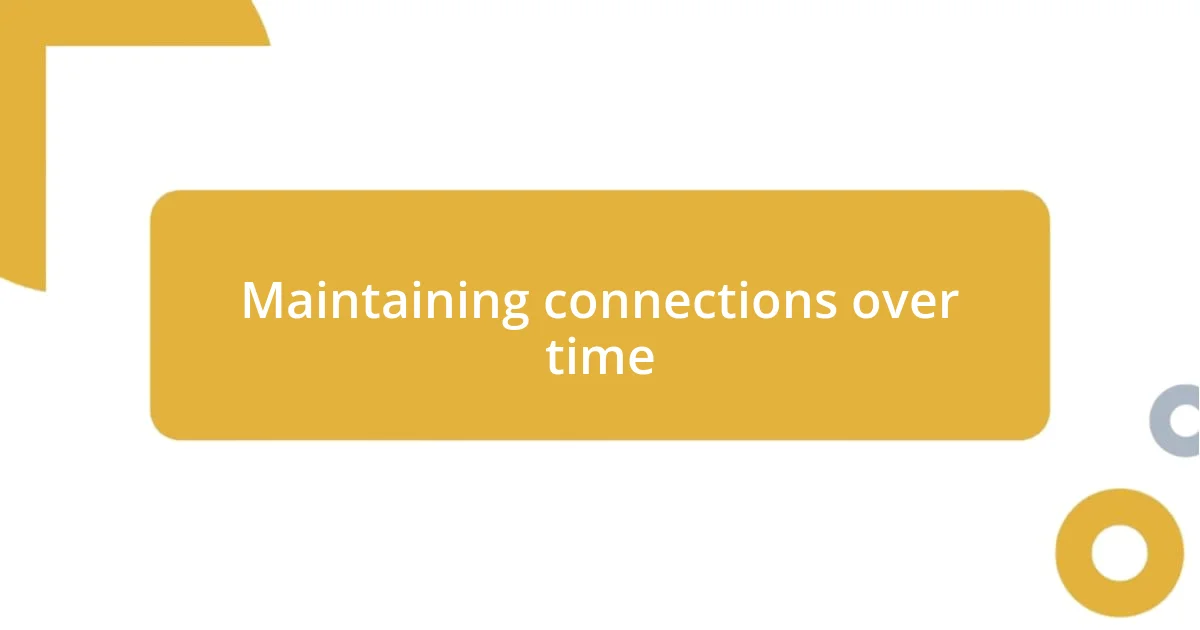
Maintaining connections over time
Maintaining connections over time requires a healthy mix of consistency and creativity. I remember a friend who started sending out annual holiday cards to her professional contacts. This simple gesture not only kept her on their radar but also sparked joy and nostalgia. Have you ever noticed how a handwritten note can brighten someone’s day? It’s such an easy way to remind people you are thinking of them, making the relationship feel more personal despite the miles or years apart.
Engagement doesn’t have to be elaborate; sometimes, it’s the smallest actions that leave the most lasting impressions. I’ve occasionally tagged former colleagues in relevant articles on social media, prompting conversations about shared experiences. For instance, when I shared a post about a project that resonated with a former teammate, we ended up reminiscing about the challenges we faced together. Isn’t it great when an old connection is rekindled over a comment or a like? Those little sparks of interaction can pave the way for more meaningful dialogues down the road.
I’ve also made a point to be mindful of significant milestones in my connections’ lives. Sending a congratulatory message when someone shares a new job or achieves a personal goal goes a long way. Not too long ago, I reached out to a mentor who had just published a book. I expressed my admiration for their hard work, and this led to a heartwarming exchange about their writing journey. Don’t underestimate the impact of recognizing others’ achievements; it solidifies the bond and shows you genuinely care about their success. How often do we miss an opportunity to connect by simply forgetting to celebrate others?
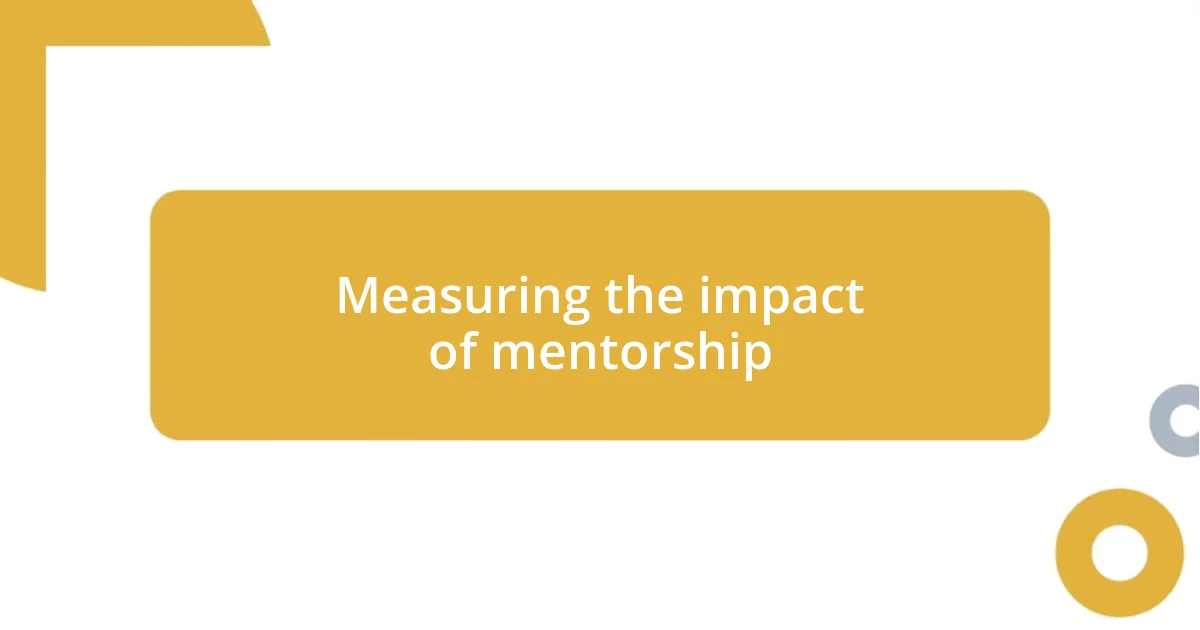
Measuring the impact of mentorship
Mentorship’s impact can often be challenging to quantify. I remember my first mentor, who guided me through the complexities of navigating career transitions. It was during our weekly coffee chats that I realized I was gaining not only knowledge but also confidence; the real measure of their influence was in how I began to approach opportunities with newfound courage. Have you ever reflected on how your confidence level shifted after someone believed in you?
Another way I’ve assessed the impact of mentorship is through goal setting. When I collaborated with my mentor to define my career objectives, I could track my progress more clearly. Each milestone I achieved felt like a testament to their guidance. I now understand that mentorship isn’t just about advice but also about helping someone carve a path forward. How many of us truly take the time to reflect on the progress we’ve made with the help of another?
Finally, observing changes in my professional relationships has been a key indicator of my mentorship experience. Reflecting on a time I landed my first significant client thanks to a referral from my mentor made me appreciate how such guidance can reshape our networks. Their belief in my capabilities opened doors I hadn’t even considered. Isn’t it fascinating how one relationship can lead to an entire network blooming?










